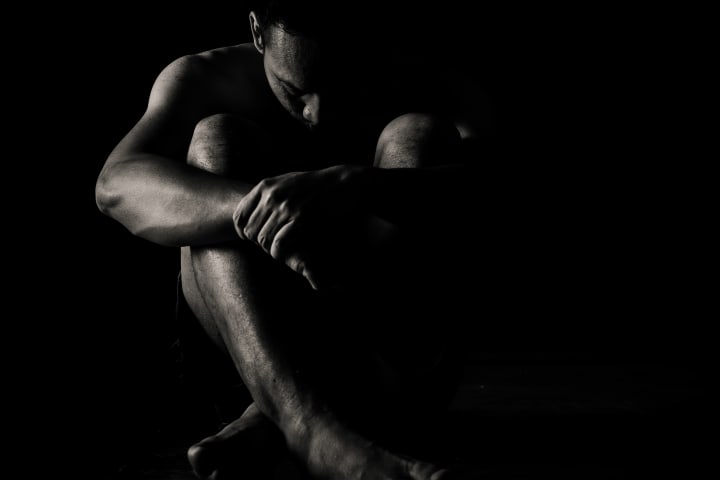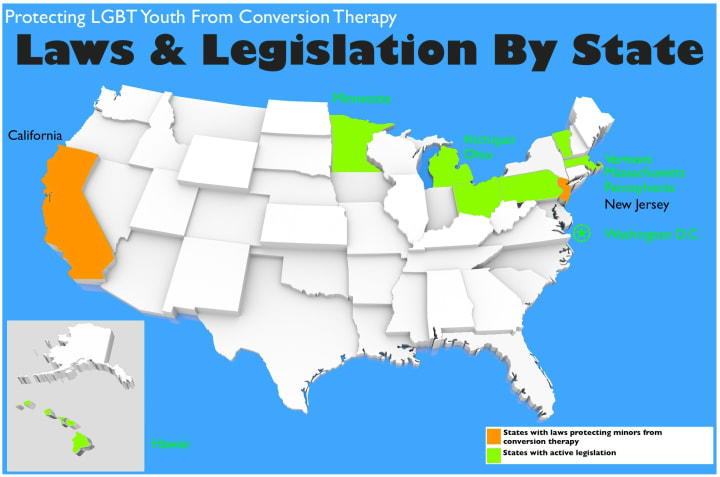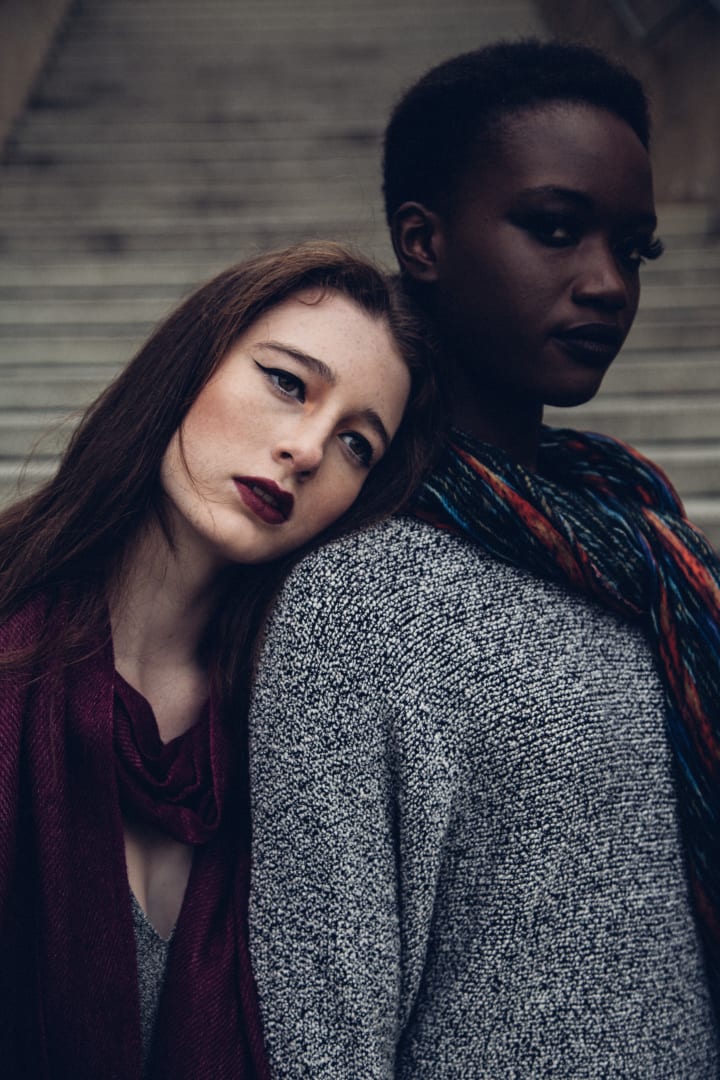
If you are not part of the LGBT community, it is likely that you have never heard of conversion therapy. For those who are part of the community, it is a heartbreaking and devastating thing that has destroyed many lives. Today, we will explore what it is, and how it has impacted so many.
What Is Conversion Therapy?

Photo by Ricky Turner on Unsplash
Conversion therapy is sometimes called Ex-Gay Therapy, Reparative Therapy, or Sexual Orientation Change Efforts (SOCE). No matter the name, conversion therapy has one goal: to change the sexual orientation or gender identity of a person. This is something that is desired by many homophobic parents—so much so that they will put their child in danger in order to make this change.
There are many different ways conversion therapy may be implemented. Most incorporate different strategies such as behavioral, cognitive, psychoanalytic, and bio-medical practices.
One of the most common practices in conversion therapy is to torture individuals with electrical shocks, induce vomiting, or expose them to other aversive stimuli while they are forced to view homoerotic images. This is based off of the principle of classical conditioning, and falls under the term "aversion therapy." The idea is that homosexuals will form an association between pain or suffering and homosexual acts.
In some cases, individuals are made to feel guilt for acts of non-heterosexuality. They are told over and over again that they are a bad person or that they hurt others due to their sexual orientation or identity. This may be paired with classes on how to date, or what to look for in a sexual relationship.
Many individuals that go through these "treatments" come from extremely religious families. In these cases, threat of divine intervention or declarations that the individual will go to hell are often used. To some individuals in the LGBT community, religion is really important. They find religion to be a source of acceptance, so having it being used against them can be very damaging.
Earlier forms of conversion therapy often included chemical castration or other body-altering surgeries. Most of these practices are no longer used, and have been made illegal in most states. However, some may still persist.
How Does Conversion Therapy Hurt People?

As you have now learned, conversion therapy uses many techniques that induce stress, and reject a person's identity or sexuality. More extreme treatments may also be seen as a form of trauma or abuse. No matter the experience, all forms of conversion therapy may have lasting consequences.
Physical harm has been limited due to advocacy and legislation, but psychological harm is still prevalent. Many who go through conversion therapy suffer from severe anxiety, depression, identity uncertainty, or post-traumatic stress (PTSD). It is estimated that LGBT students are twice as likely to commit suicide compared to their heterosexual peers. This number is likely to increase with constant abuse. Many people who have gone through conversion therapy have been pushed to take their own lives. Conversion therapy can lead to suicide.
Isn't This Illegal?

Map from www.nclrights.org.
In short, no. Over 40 states still allow the practice of conversion therapy. Many of these practices are protected under the freedom of religion, freedom of speech, or parental rights.
As you probably already know, parental consent is required for any medical procedure or psychological care for those under 18. Minors also do not have the right to reject such treatment if the parents sign off on it. The majority of people who are subjected to conversion therapy are teens. They do not have any legal rights to protect themselves, and are at the mercy of their parents and the people running the programs. That being said, sometimes adults do commit themselves to conversion programs due to suffering they have had inflicted upon them due to their identity or sexual orientation. These people often are desperate to escape the discrimination many LGBT individuals face.
As was stated earlier, many practices within conversion therapy have been outlawed due to their dangerous nature. However, many individuals who run conversion therapy are not licensed professionals, and may practice harsh and outlawed techniques under the eyes of others. Legislation has helped lessen the impact of conversion therapy, but it is still not enough.
Some states have actually rolled back laws protecting LGBT individuals. Minnesota re-legalized conversion therapy early 2019. This was one state that had banned such treatments, and was an advocate for the LGBT community. Seeing conversion therapy being legalized again in the state was a big blow to the community.
Does It Work? Do People Still Support This?

Photo by Shamim Nakhaei on Unsplash
Research has proven time and time again that neither gender identity nor sexual orientation can be changed. People are born the way they are. All that conversion therapy accomplishes is traumatizing individuals, and denying people their way of life. No form of conversion therapy has been proven to help anyone. This has been publicly discussed and reviewed by the American Psychological Association (APA), which is the center of psychological research and regulations.
The APA, American Academy of Pediatrics, American Counseling Association, National Association of School Social Workers, and many others have denounced the use of conversion therapy. Few licensed medical practitioners or mental health experts condone, much less participate in, conversion therapy. Most of these practices are carried out by religious leaders, parents, or self-proclaimed experts.
The National Association for Research & Therapy of Homosexuality (NARTH) is an organization of conversion therapy practitioners. They endorse the use of conversion therapy, and provide advice to homophobic parents. This is an organization that is not recognized within the mental health community and is known for a lack of valid research.
How Can I Help?

Photo by Rémi Walle on Unsplash
Most people know little about conversion therapy. The biggest thing that is needed is advocacy and education. People cannot change what they do not know about. Spread the word. Educate yourself. Teach others.
Supporting those who have gone through trauma may be tough. Remember to be patient and know your limits. If you are not a licensed professional, you need to recognize that it is not your responsibility to heal someone. Only the person in pain can do that, and sometimes it takes professional help. Encourage people to seek therapy if they need it, but let them go at their own pace. Your job is to be supportive, and just be a shoulder to lean on in times of need.
Carry the number of a suicide hotline on you. There are many resources for LGBT and non-LGBT people suffering with suicidal thoughts. Learn about these resources and educate others. You never know when you'll run into someone who needs it.
Contact your representative. This is an issue that is often fought in the dark. Pressure legislators and politicians to take action. We need laws in place to protect the rights of LGBT children.
More than anything, be kind. You never know what someone went through. Everyone deserves respect regardless of sexuality, identity, race, or economic status. Be an advocate for kindness.
For more information visit...
Or meet with a mental health professional.
Thank you!
About the Creator
Lorraine Woiak
I am a psychology and music major at the University of North Dakota. As a part of the Army ROTC program, I am working towards a career as a military psychologist.





Comments
There are no comments for this story
Be the first to respond and start the conversation.